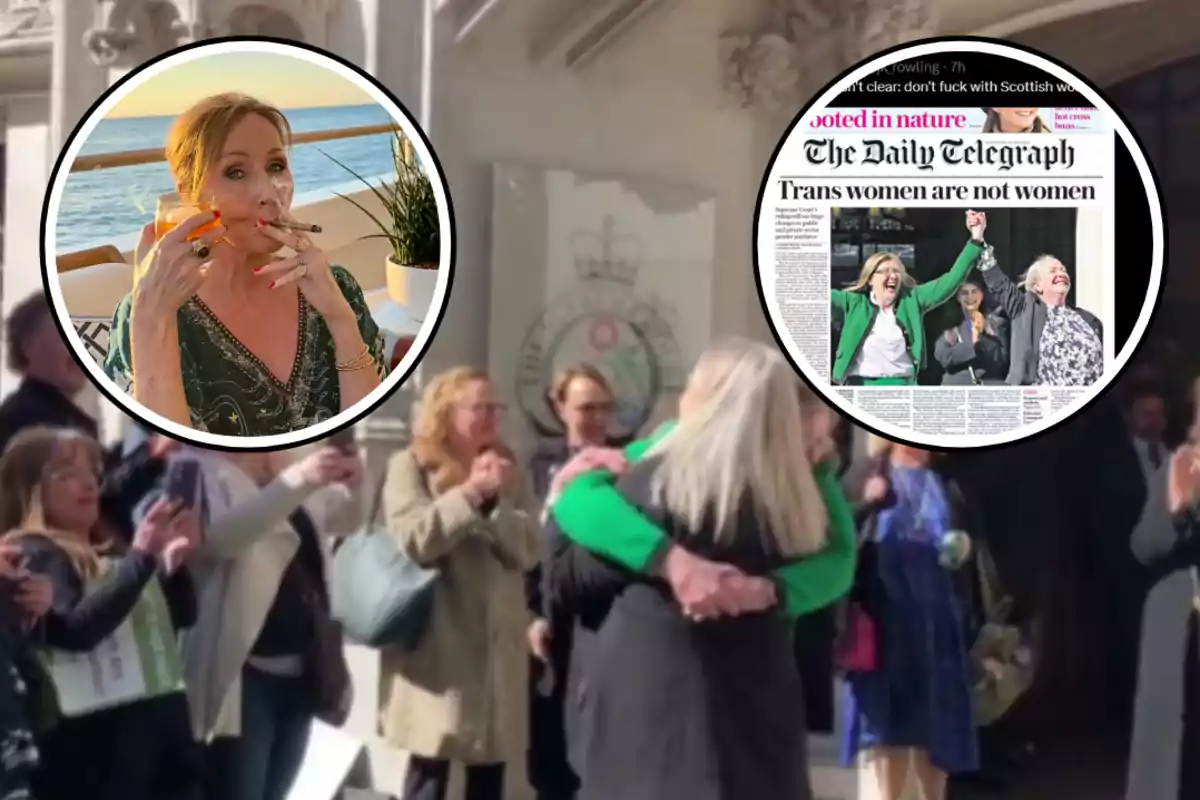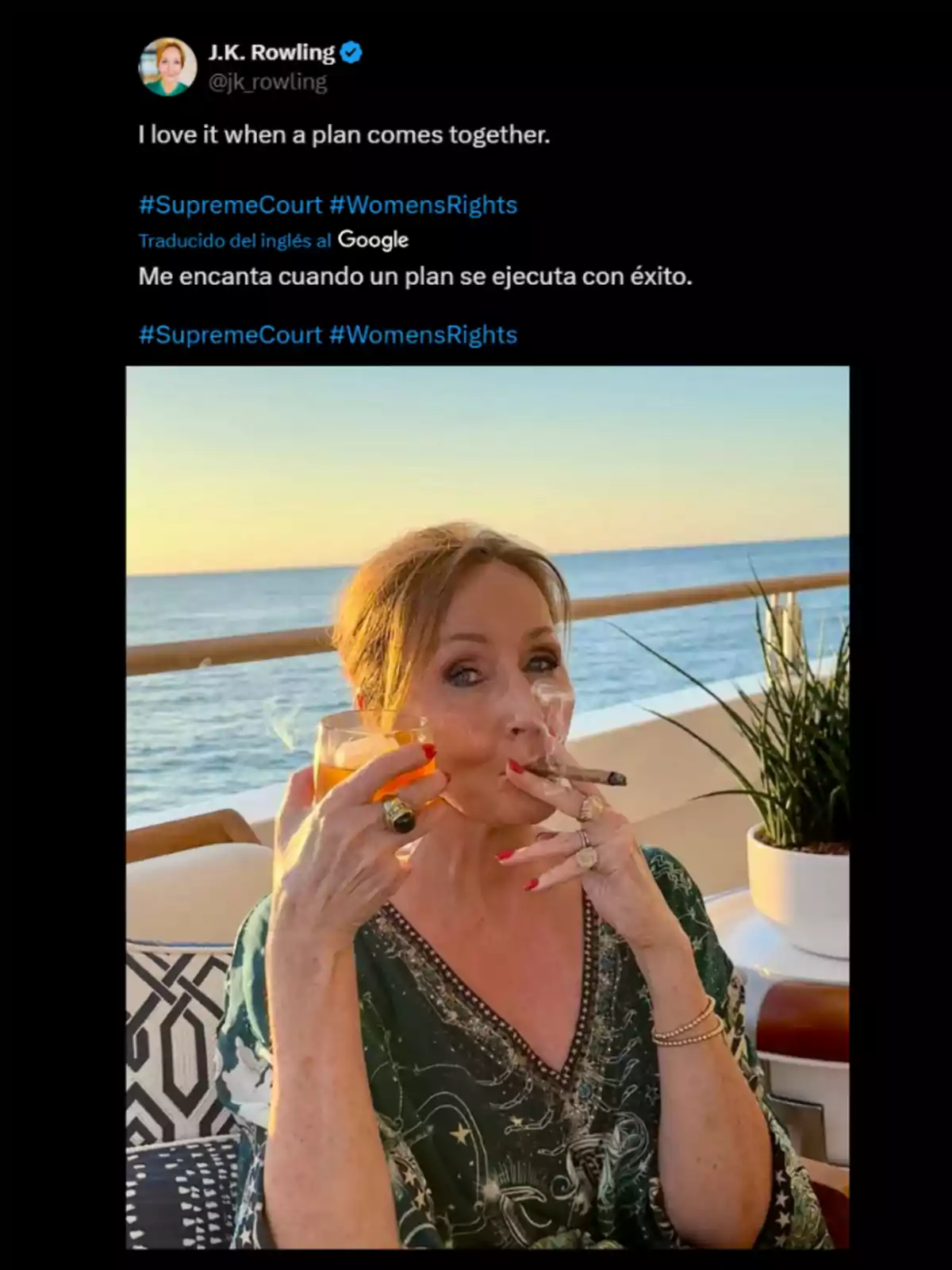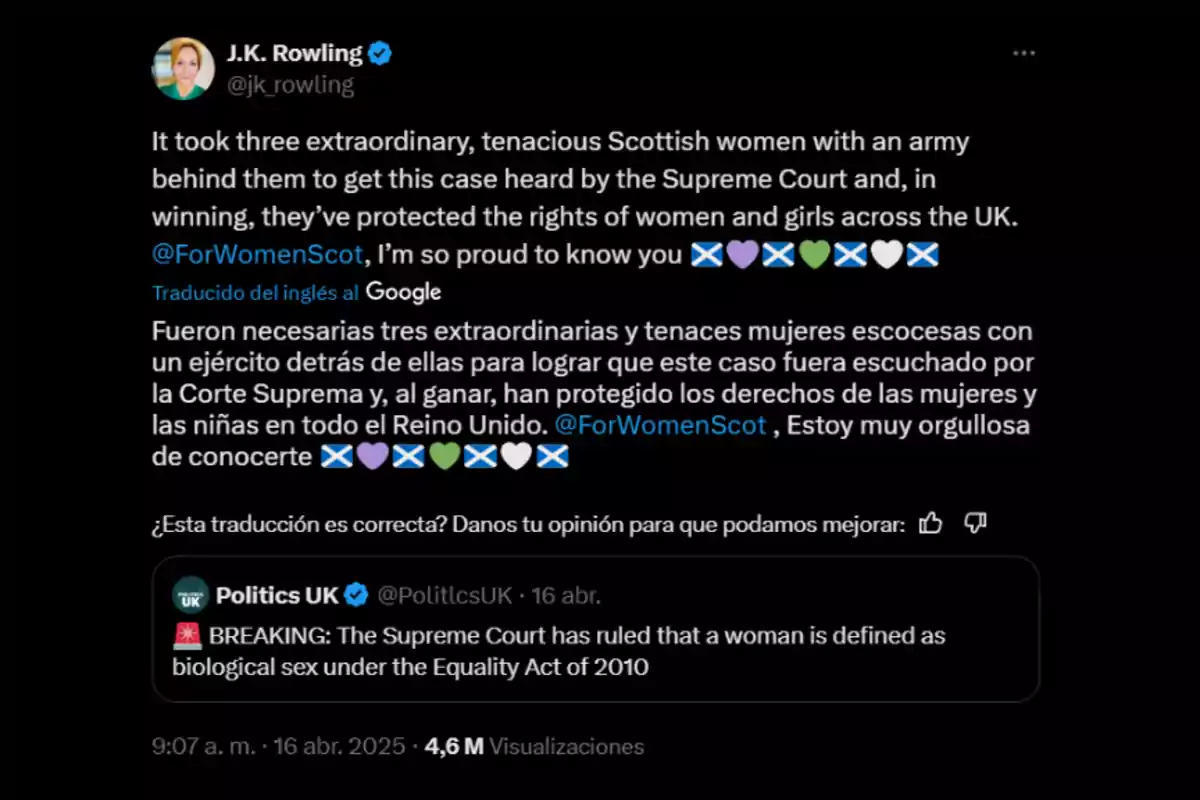
J.K. Rowling celebrated the Supreme Court ruling: 'Trans women are not women.'
The author of Harry Potter celebrated the British Supreme Court's ruling that supported For Women Scotland
The United Kingdom experienced a judicial milestone following the British Supreme Court's ruling, which established that the terms "man," "woman," and "sex" in the Equality Act 2010 should refer exclusively to biological sex. With this resolution, the court rejected any legal reinterpretation that included trans women within the legal concept of woman.
The ruling represented a crucial victory for For Women Scotland, a feminist organization known as anti-transgender. This entity challenged the inclusion of trans women in regulations designed to increase female representation in public institutions.
The Supreme Court defined that "woman" refers exclusively to biological sex
The case reached the highest court after six years of legal dispute. The controversy centered on the validity of the Gender Recognition Certificate (GRC), which allows trans people to be legally recognized with a gender different from their birth gender.

For Women Scotland took the case to the Supreme Court and won
The feminist organization, supported by lesbian rights activists, challenged the 2018 Scottish law that granted female quotas to people with a GRC. They argued that this redefinition exceeded the legal powers of the Scottish Parliament and distorted the legal basis of the Equality Act.
In 2022, the Scottish government issued new guidance insisting on considering trans women as women for legal purposes.However, For Women Scotland managed in 2024 to bring their case before the United Kingdom Supreme Court, which ultimately ruled in their favor.
The verdict also had practical implications in sex-segregated spaces, such as sports clubs, schools, or centers for victims of violence. The British Labour government celebrated the decision for providing "clarity" in the use of these spaces.
J.K. Rowling celebrated the ruling as a triumph for women
J.K. Rowling, writer of the Harry Potter series and resident of Scotland, did not hide her enthusiasm for the judicial decision. On the social network X, the author expressed:"It took three extraordinary and tenacious Scottish women with an army behind them to get this case heard by the Supreme Court and, by winning, they have protected the rights of women and girls across the UK."
The author, one of the most critical voices of "transactivism," declared that same day , along with her husband Neil, as "TERF's Victory in Europe Day," using ironically the term often used to disparage feminists who defend biology as the legal basis of gender.

Rowling also reminded that no child is born in the wrong body, questioning the very existence of "trans childhoods." Over the years, she has been accused of transphobia and has had public disagreements with figures from the Harry Potter franchise, such as Daniel Radcliffe and Emma Watson.
The ruling marks a turning point in British legislation
The Court made it clear that trans women, even if they have a Gender Recognition Certificate, are not covered by the provisions intended for women under the Equality Act. With this, the Supreme Court corrected the Scottish government's stance, calling it "legally incorrect."
This ruling not only closed a legal battle that lasted for years but also set a decisive precedent for the future of "equality policies" and the legal interpretation of sex in the United Kingdom.
For For Women Scotland, and for J.K. Rowling, it was a resounding victory. One that, according to them, protected rights won by generations of women.
El fallo de la Suprema Corte en el Reino Unido
More posts: